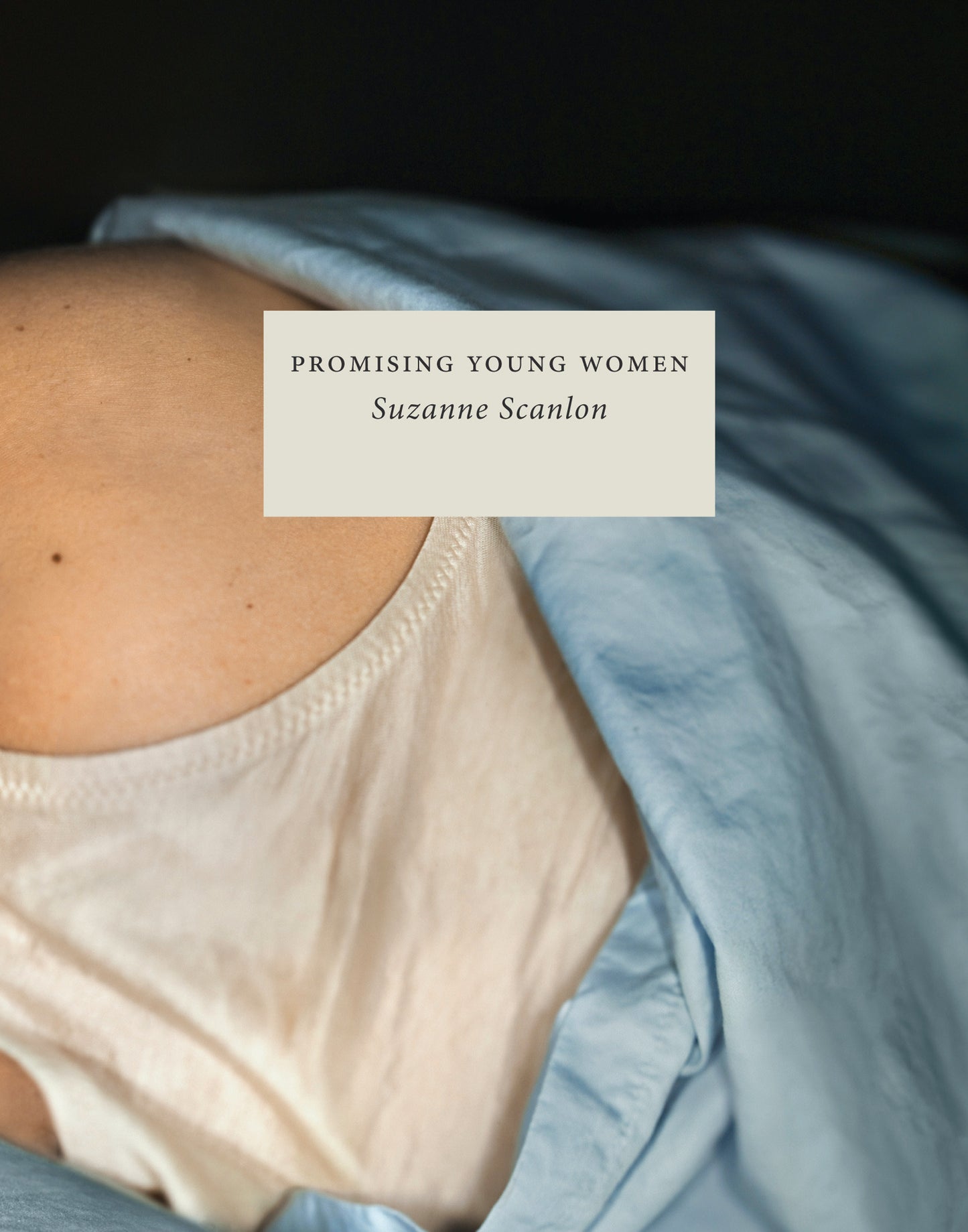Suzanne Scanlon enters the inverted space of grief and near-madness with courage, intelligence, and wit—and with a small, sharp light for us to follow.
—Dawn Raffel
Promising Young Women [is] a criminally underappreciated book about being institutionalized . . . It firmly put [Scanlon] in "I’ll read anything she writes with great enthusiasm" territory.
—Paper
About ten lives occur in this very short novel. One swiftly becomes the background of the next, then that one looms up fast and for a moment you think oh this is the life. And it is ending. I like the swift consciousness with which Suzanne Scanlon orchestrates all of it and even more I admire the true (and maneuvered) intimacy that holds me here on the page despite the fact that inside and out of this volume of Promising Young Women there are so many of us, lives, and women and female writers. You wonder if we matter at all and Suzanne Scanlon says in a multitude of quietly intelligent and felt ways that we do, helplessly, all of us do, no matter.
—Eileen Myles
The voice, or voices, in Suzanne Scanlon’s Promising Young Women are sly, tragic, knowing, wounded, and brave. This wholly original novel is a wonderfully refreshing addition to the many stories that tell us the news of women’s grief, rebuilding, coming to terms.
—Mary Gordon
I have been moved by the book’s ability to deftly capture human existence—one that allows a strong and smart woman to simultaneously be terrified of herself and the world around her. It’s an intimate read that’s reminiscent of Sylvia Plath and Susanna Kaysen before it, but for a new age.
—The A.V. Club
In pitch-perfect prose, Suzanne Scanlon has given us wonderful Lizzie—smart, brave, and, at the same time, so scared stiff by her young life that that she winds up on a psych ward run by Dr. Roger, whose specialty is ‘troubled, pretty girls.’ Promising Young Women digs deep and speaks to us all about how we compose our individual lives in the wilds of modern times.
—Elizabeth Evans
If Scanlon had employed the strategies of conventional realism, these troubling but utterly convincing stories of life in and out of psych wards would be mere bathos. Written through the liveliest sort of formal invention, they acquire real force and authority. The reader is driven before the story like something driven before a wave. And that is a deeply pleasurable feeling.
—Curtis White
Promising Young Women quietly and discreetly echoes The Bell Jar, but is also in conversation with it. If Plath’s only novel was a searing and caustic portrait of white middle-class female sadness in the ‘60s, then Scanlon’s debut is a sensitive and troubling portrait of white middle-class female sadness in the ‘00s. The book as a physical object—published by Dorothy, the Publishing Project—is very much like the women Scanlon writes about: it’s beautiful and elegant, with a lovely cover that somehow evokes melancholy without revealing too much. Intensely personal and pared down—the stories in this book are moods, feelings, thoughts, and experiences observed in close detail—Promising Young Women looks back at The Bell Jar and seems to say, Dear Sylvia, Everything has changed but nothing, really, has changed.
—PopMatters
[Scanlon] brilliantly undermines the narrative of "girls with problems," even as she reconstructs it.
—The Rejectionist
Promising Young Women [avoids] the rules of conventional realism, wisely opting instead for fragmentary tales to present its subject matter: a young woman in and out of psychiatric institutions.
—Chicago Tribune






